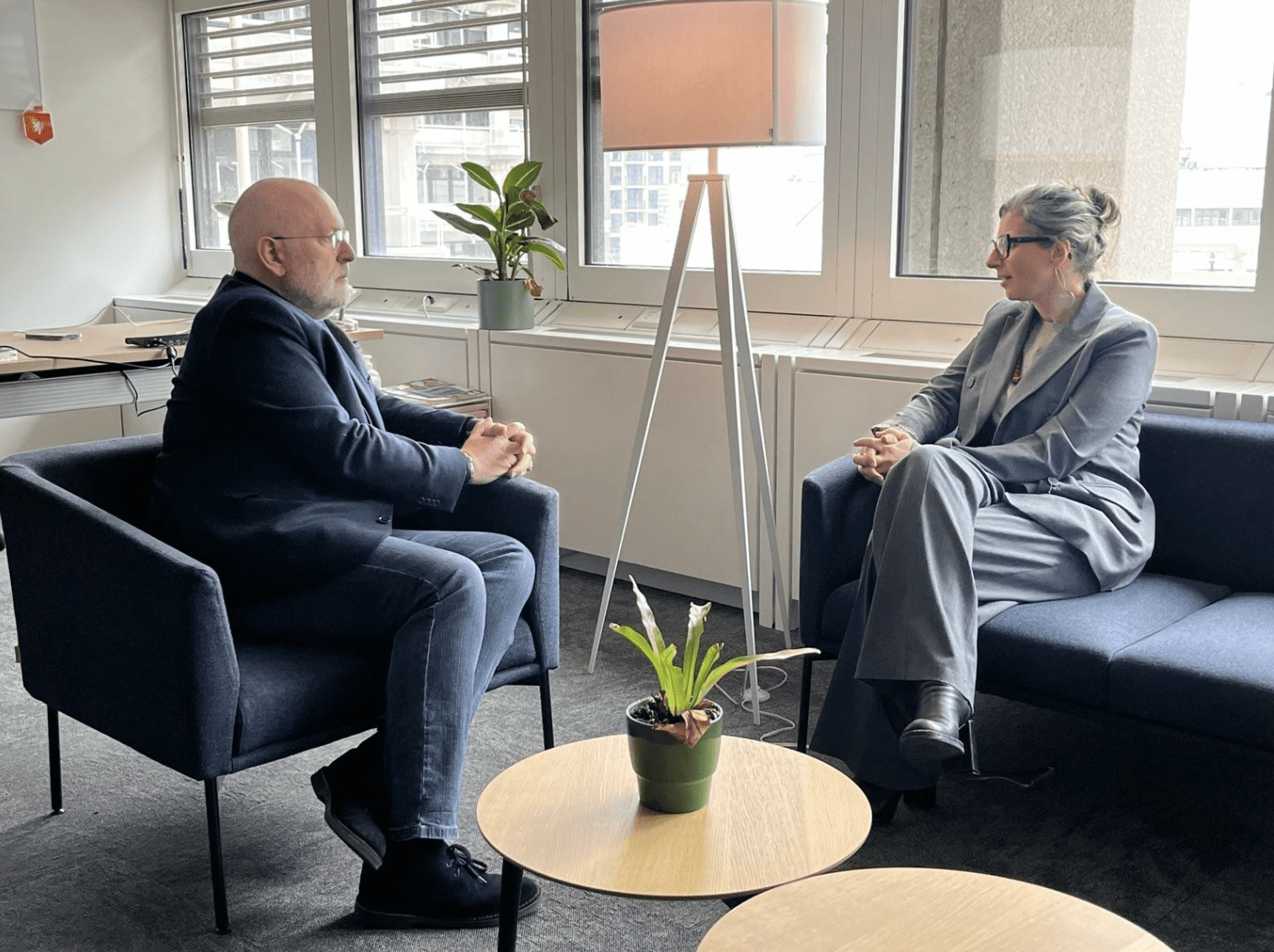Liesbeth Zegveld is hoogleraar War Reparations aan de UvA, mensenrechtenadvocaat en lid van de Raad van Advies van The Rights Forum.
19 February 2025By turning its back on a UN rapporteur, the Netherlands undermines both the international legal order and its own legitimacy, warns human rights lawyer Liesbeth Zegveld.

On 11 February the Foreign Affairs committee of the Dutch House of Representatives withdrew an invitation to Francesca Albanese, the UN Special Rapporteur on the occupied Palestinian territories. Earlier, Foreign Affairs Minister Caspar Veldkamp (NSC) had refused to meet her. All this is dangerous for the United Nations and for the legitimacy of the Netherlands within the international legal order.
For a peaceful and just world, we cannot do without a healthy, strong international legal order. That is why, since 1953, the Dutch constitution has stipulated that the government should promote the development of the international legal order. The UN is the backbone of that order. That organisation was established shortly after World War II to facilitate international cooperation to ensure peace, stability, and justice. Another world war could then be prevented.
The UN Charter, also signed by the Netherlands in 1945, defines the goals of the international organisation. Namely: maintaining international peace and security; developing friendly relations between countries; establishing international cooperation for solving international issues; promoting respect for human rights for all people; and being a centre for the realisation of common goals.
There are currently about 80 UN special rapporteurs, all of whom investigate a particular issue or country. The UN appoints a special rapporteur when there is a consistent pattern of human rights violations somewhere. Rapporteurs are independent experts who report to the Secretary-General or Human Rights Council. They represent the interests of the victims. This way the UN exercises influence to strengthen and improve the rule of law. The International Court of Justice also regularly relies on reports by a rapporteur. Rapporteurs thus perform a central function in the UN system.
The refusal to host a UN rapporteur is therefore a dangerous step. By doing so, the Dutch government signals that it does not take the UN seriously. The ease with which someone who stands for the leading organisation for international cooperation and peace is denied access – and thus silenced – undermines the international legal order and thus also the Dutch one. When the government sidelines the UN, it also distances itself from the goals that were established after World War II.
Incidentally, this is not the first time the Netherlands has clashed with a rapporteur’s views. In 2015, the Netherlands was criticised over Black Peter, in 2022 over the way police had treated corona demonstrators, and in 2024 over housing policy.
So far, these criticisms have always led to anger and discussion, but also to change. For instance, after the critical report on adequate housing, then-minister Hugo de Jonge (Housing, CDA) said he agreed with the UN rapporteur’s conclusion that the scarcity in the housing market was partly caused by the government having relied too much on the market. At other times, too, when the Netherlands disagreed with the UN, we found ways to deal with it. In this way, the Netherlands continued to contribute to the international legal order.
The interaction between the Netherlands and the UN had difficult moments, but we always continued to participate. Refusing Francesca Albanese because of her views is a low point. By turning its back on a UN rapporteur, our country moves further away from international cooperation, security, and peace.
Liesbeth Zegveld is professor War Reparations at the UvA, human rights lawyer and member of the Advisory Council of The Rights Forum. A Dutch version of this article appeared in NRC on 13 February 2025, and two days later on this site.